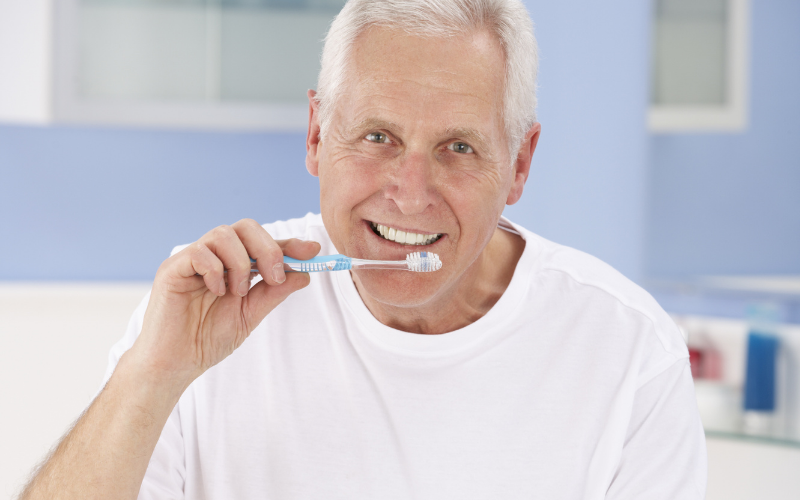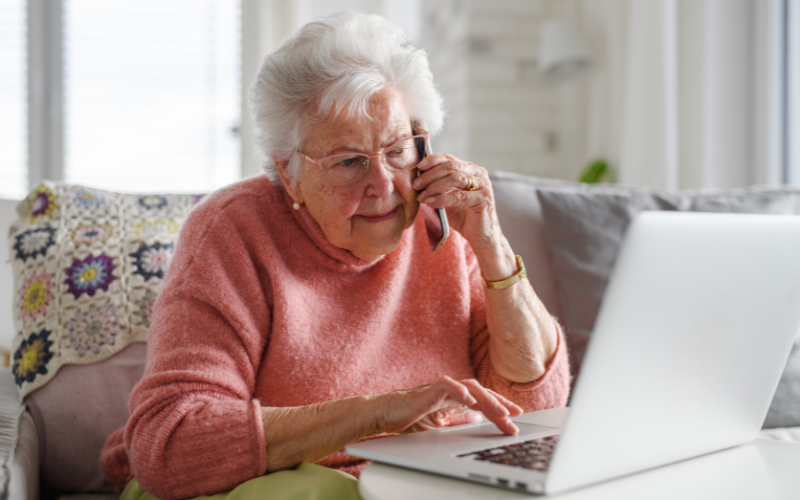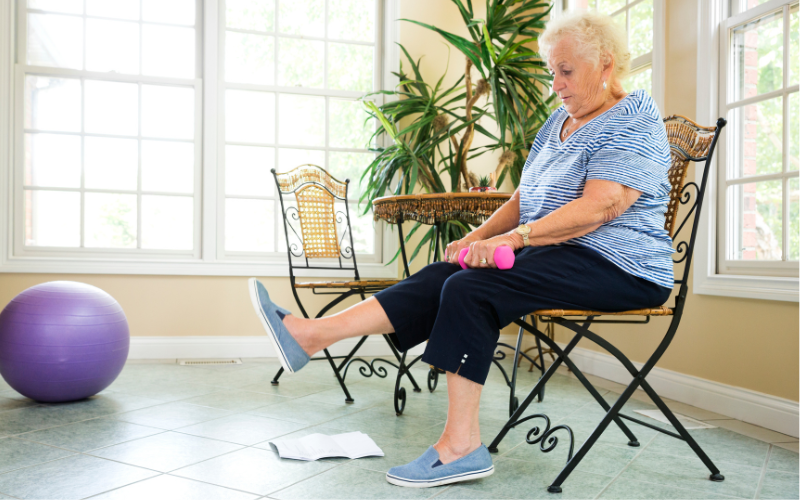
Maintaining good personal hygiene is essential at any age, but it becomes especially important for older adults. As your loved ones age, physical limitations, cognitive decline, or emotional challenges can make it harder for them to keep up with daily hygiene routines. Unfortunately, neglecting hygiene doesn’t just affect their appearance, it can lead to serious health risks, including infections, skin issues, and even emotional distress. In this blog, we’ll explore the effects of poor hygiene in the elderly, why it happens, and how you can help ensure your loved one stays healthy, comfortable, and dignified.
What Causes Poor Hygiene in the Elderly?
Poor personal hygiene and self-neglect among the elderly can be caused by several factors from physical and cognitive limitations to mental health issues. If you notice a decline in personal hygiene in your senior loved ones, determining the root cause can help you effectively address the issue.
The following are the most common causes of poor personal hygiene in seniors:
- Dampened senses: Seniors typically experience a decline in their senses including sight, taste, smell, and hearing. Their dampened senses may make them unaware of the state of their hygiene as they may not notice their bad breath or body odor.
- Physical limitations: Physical limitations often make it challenging for seniors to maintain proper personal hygiene. For example, reduced mobility may prevent them from reaching the bathroom in time, while arthritis in their hands can make tasks like clipping their nails or brushing their teeth difficult to manage.
- Fatigue: As seniors age, maintaining personal hygiene can become increasingly challenging due to reduced energy and physical stamina. Activities like bathing may feel exhausting, turning a simple task into a daunting chore. It’s not uncommon for older adults to occasionally resist or refuse to bathe altogether.
- Dementia: Just as physical decline can hinder personal hygiene; cognitive decline poses its own challenges. Seniors with Alzheimer’s disease or dementia may forget to carry out basic hygiene routines altogether. Even with reminders from caregivers, cognitive impairments often leave them unable to recall the steps needed to complete these tasks.
- Depression: Seniors affected by depression may lose motivation to keep up with their personal hygiene or view these tasks as chores.
- Fear: Seniors may develop a fear of falling as they get older which can prevent them from doing certain tasks like bathing.
- Embarrassment: Some seniors may be aware of their shortcomings when it comes to personal hygiene but are too embarrassed to ask for help. Personal hygiene tasks such as bathing and toileting are sensitive and seniors may not feel comfortable asking a family member or caregiver for help.
Why is Good Personal Hygiene for Seniors Important?

Health and hygiene go hand in hand, playing a vital role in overall well-being. Maintaining good hygiene not only boosts confidence and comfort, especially for seniors, but also helps prevent health issues like urinary tract infections. Regular bathing, handwashing, and proper oral care are simple yet effective ways to stay healthy.
Neglecting personal hygiene, on the other hand, can lead to the spread of diseases and the onset of various medical conditions. Respiratory infections such as colds or the flu, staph infections, diarrhea, and even tooth decay are just some of the risks associated with poor hygiene habits. A consistent hygiene routine is essential for seniors to protect their personal health and well-being.
The following are some of the possible detrimental effects of poor hygiene for seniors:
1. Skin Infections
Regular bathing is essential for seniors to prevent skin infections. If they do not bathe regularly, bacteria, fungi, and parasites can cause infections that affect both the skin and hair and make them more susceptible to disease. Maintaining a consistent bathing routine and moisturizing their skin can help protect seniors from infections and support their overall health.
2. Dental Problems
If seniors do not practice proper oral hygiene, bacteria will accumulate inside the mouth which increases the risk of periodontal disease. Gum disease and tooth decay are painful and can cause tooth loss which makes the mouth vulnerable to further infection. Poor oral hygiene also leads to bad breath and can even increase the risk of disease throughout the body.
Seniors can avoid periodontal disease and tooth decay by brushing and flossing twice each day.
3. Body Odor
Unpleasant body odor can be a sensitive issue, often caused by irregular bathing or wearing unwashed clothing. To help seniors maintain their hygiene and confidence, caregivers should establish a routine that includes bathing at least twice a week and providing clean, fresh clothing each day. Additionally, ensure that dirty clothes are laundered weekly to maintain cleanliness and comfort.
4. Depression
When seniors are no longer able to manage personal hygiene themselves, they are at a higher risk of depression. Poor personal hygiene affects a senior’s appearance which can lower their confidence and make them more susceptible to depression. Depression may also be the cause of poor personal hygiene as those affected may lose motivation to take care of themselves.
5. Illnesses
Proper hand hygiene is essential to prevent the spread of infections like COVID-19, the flu, and the common cold. Caregivers should encourage aging loved ones to wash their hands thoroughly with soap and water, especially after blowing their nose, using the restroom, or treating open wounds.
Handwashing is equally important before and after meal preparation. Clean hands help prevent the contamination of food, protecting seniors and others from harmful bacteria. For elderly individuals handling raw meat, washing hands is crucial to avoid the spread of bacteria and reduce the risk of illness. By emphasizing regular handwashing, caregivers can help safeguard the health and well-being of their loved ones.
How do Caregivers Promote Good Hygiene in Seniors?
The best way to encourage your senior loved ones to practice good personal hygiene is to create a supportive environment and establish routines that are easy for them to follow. You must also identify the cause of their poor personal hygiene, whether it is due to physical or cognitive limitations or depression, and make sure they get treatment for these issues.
It is important to work with your loved ones to find the best solutions that meet their needs and are within their abilities. You can encourage your senior loved ones to practice good personal hygiene by doing the following:
- Establish a routine: Work with your loved ones to create a daily routine that includes dressing, bathing, and oral care. You can reinforce the routine by designating the times or order of each task. Establishing a routine makes it easier and less overwhelming for seniors to manage their personal hygiene. Seniors with dementia especially benefit from routine.
- Make personal hygiene tasks enjoyable: If your loved ones view personal hygiene tasks as a chore, make them more enjoyable. Play relaxing music, provide warm towels, and layout their clothes for them to make the experience less stressful.
- Address challenges to personal hygiene: If your loved ones face specific challenges that make personal hygiene difficult, address their challenges. Install grab bars near the toilet and bathtub for those with limited mobility or a fear of falling and make sure to provide gentle reminders and simplify tasks for those with cognitive limitations.
- Encourage handwashing: Seniors who regularly wash their hands can help prevent the spread of illnesses. Encourage your senior loved ones to wash their hands regularly, especially after using the restroom, before eating, and after handling food or other potentially hazardous substances.
- Keep the bathroom clean: You should make sure that the bathroom is clean and free of clutter to make it as accessible as possible for your loved ones.
- Respect their privacy: Make sure to respect the privacy of your loved ones as much as reasonably possible and ensure modesty by helping them stay covered with a towel.
- Provide hygiene aids: Offer seniors hygiene aids designed to make self-care tasks more accessible and independent. Many older adults value products like long-handled razors and toenail clippers, which simplify grooming. Additionally, long-handled shower brushes provide extra convenience, making daily routines easier and more comfortable.
In-Home Care from Assisting Hands
Poor hygiene in older adults is more than just a matter of appearance, it can have serious consequences for their physical health, emotional well-being, and overall quality of life. Whether it’s due to physical limitations, cognitive decline, or emotional struggles, understanding the root cause is the first step in offering meaningful support. As a caregiver or family member, you play a crucial role in helping your loved one maintain their dignity and health through good hygiene practices. By establishing supportive routines, addressing specific challenges, and creating a compassionate environment, you can ensure your loved one feels clean, comfortable, and cared for every day.
Families who do not have the ability to help their senior loved ones with their personal hygiene tasks on a daily basis can reach out to our caregivers at Assisting Hands Home Care. We provide in-home care services that include help with activities of daily living (ADLs) like bathing, dressing, and toileting.
Seniors who choose our compassionate elder care services gain the confidence to continue living at home. Our personalized in-home care options empower older adults to age in place, maintaining their independence and comfort in the familiarity of their own surroundings.
At Assisting Hands Home Care, our professionals are fully licensed, bonded, and insured. Each caregiver undergoes thorough background checks, is certified in CPR and first aid, and is trained to handle emergencies with expertise. These rigorous qualifications provide families and their loved ones with the reassurance and peace of mind they deserve.
Assisting Hands Home Care serves seniors in Frisco, Plano, Allen, Little Elm, Prosper, TX and the surrounding areas. You can call us at (214) 609-1340) to schedule an in-home consultation.







